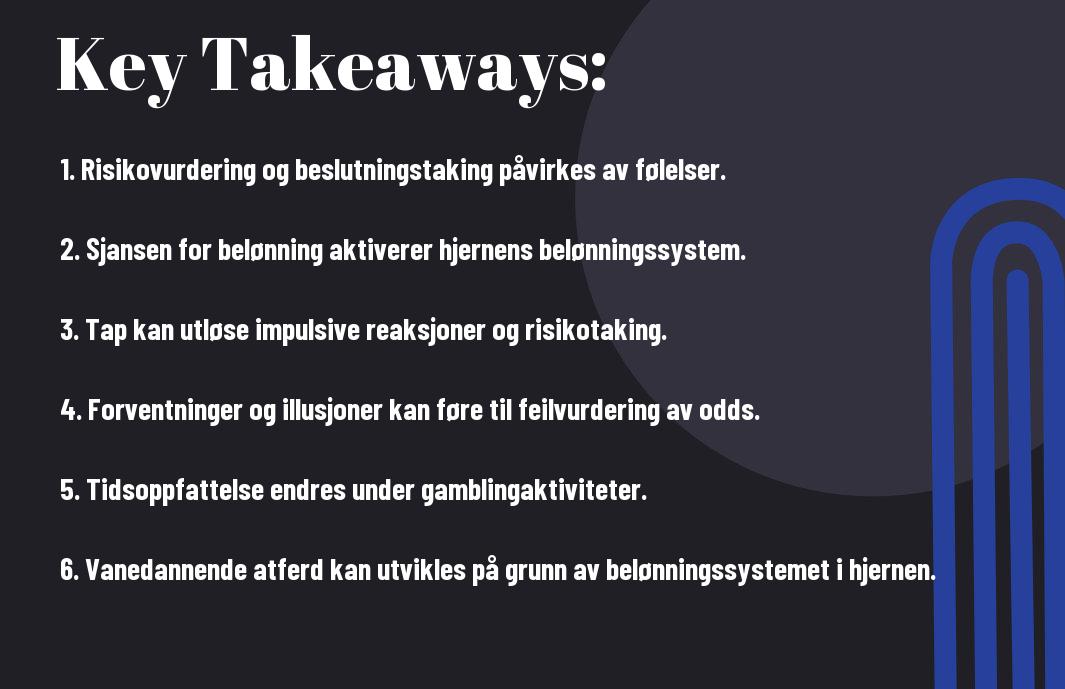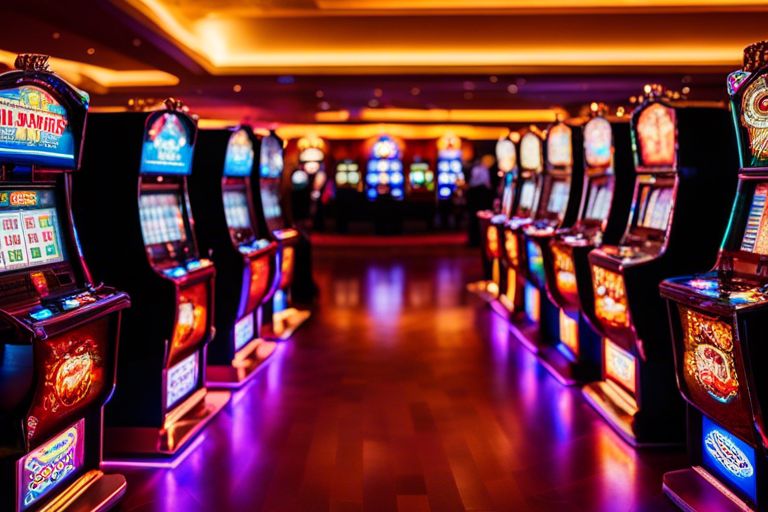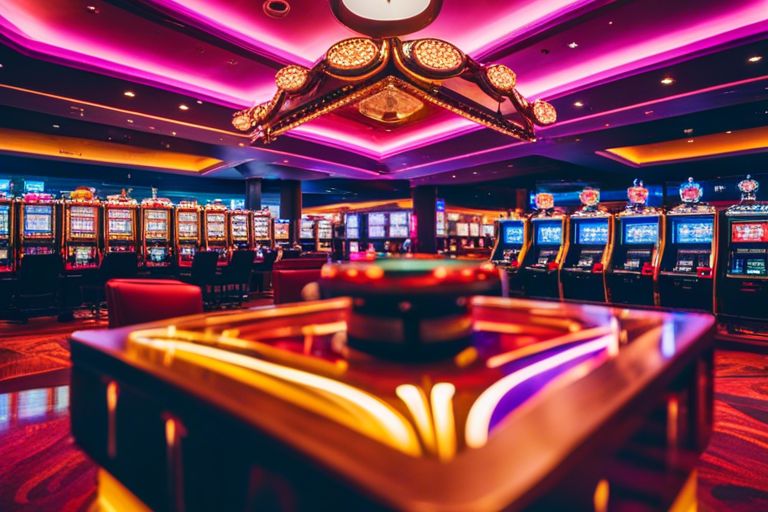Playing at a casino is not just about luck and chance – it is also a game of psychology. Understanding your mindset and how it affects your decisions while playing is crucial to controlling your actions and experiences at the casino. In this blog post, we delve into the fascinating world of gambling psychology, and look at how our thought process, behavior and emotions can affect our results at the gaming tables. By increasing awareness of your own mentality while playing, you can make better decisions, maintain control over your playing session, and potentially improve your chances of success. Join us on the journey to delve deeper into the psychology behind gambling and learn how to maximize your chances of winning at the casino.
Summary:
- Risk assessment is subjective: People assess risk differently based on their experiences, personality and state of mind.
- Loss of self-control: Gambling can lead to a loss of self-control and overstepping personal boundaries.
- The reward process in the brain: Reward centers in the brain are activated during gambling, stimulating the repetition of behaviour.
- The illusion of control: Many players believe they have control over the outcome of games, even if it is based on pure luck.
- Addiction and social influence: The risk of addiction increases with social influence and the availability of gambling opportunities.

Basics of Gambling Psychology
Risk and reward: The brain's perspective
When we talk about the psychology of gambling, it is important to understand how our brain responds to risk and reward. When we take a chance by playing a game at a casino, the reward center in the brain is activated. This leads to the release of the signaling substance dopamine, which is linked to feelings of joy and satisfaction.
The role of dopamine in gambling behavior
Dopamine plays a crucial role in gambling behavior by enhancing the feelings of pleasure and excitement associated with winning. When we win at a game, levels of dopamine in the brain increase, and this can create a positive reinforcement loop that drives us to keep playing. However, excessive dopamine release can also lead to risky behavior and addiction.

Cognitive distortions in gambling
The illusion of control
A common cognitive distortion that players experience is the illusion of control. This refers to the belief that one has some degree of control over the outcome of a random event, such as a roll of the dice or a spin on the roulette wheel. This can lead to increased risk-taking and overestimation of one's ability to influence results.
Superstitions and rituals
Superstitious beliefs and rituals are common in gambling environments, where players rely on certain actions or items to bring them luck or avoid bad outcomes. Whether it's wearing a lucky shirt, blowing on dice, or performing a specific routine before placing a bet, these superstitions can provide a false sense of security and influence decision-making at the casino.
While some people may dismiss superstitions as nonsense, it is important to recognize that these strains can have a real impact on the player's behavior. Understanding how superstitions and rituals can affect our mindset and actions can contribute to a more conscious approach to gambling and reduce the risk of adverse consequences.
Emotional factors in gambling
The thrill of victory and the pain of defeat
When it comes to gambling, one of the main factors is the emotional reactions that occur during the game. The thrill of winning can trigger a sense of accomplishment and a rush of joy, while the pain of losing can lead to frustration and despair. For a deeper understanding of these emotional betrayals, reading is recommended understanding the mindset of casino players.
Coping with loss: Emotional reactions and rationalizations
Another important factor to consider in gambling is how to handle losses. People react differently to defeat, and some may try to rationalize their losses to reduce the emotional toll. It is important to be aware of these reactions to avoid falling into unfortunate playing patterns. Read more about handling loss and the associated emotional reactions in the article about understanding the mindset of casino players.
Strategies for conscious gambling
Set boundaries and manage finances
An important part of practicing conscious gambling is setting clear limits on how much money you are willing to spend. By setting a budget in advance and sticking to it, you can avoid getting into financial trouble. It is also important to manage your money responsibly so that you are not tempted to spend more than you can afford.
Recognizing and Combating Problematic Gambling Patterns
It is important to be aware of signs of problem gambling, such as spending more time and money gambling than you have available, or feeling an irresistible urge to gamble even when it leads to negative consequences. By being aware of such warnings and taking steps to counteract them, you can avoid developing a serious gambling problem.
It is important to seek help and support if you notice that gambling is beginning to take over your life. A therapist or support group can be of great help in dealing with problem gambling and developing healthier habits.

The psychology behind gambling - Understanding your mindset at the casino
Understanding the psychology behind gambling is crucial to being able to make more informed choices when playing at a casino. Our propensity to keep playing, even when we lose, and our need for excitement and reward, are all part of the complex psychology underlying gambling. By being aware of our own mindset and reactions, we can better control our actions and avoid falling into harmful gambling patterns. Recognizing and understanding our psychological biases when we gamble can contribute to a healthier relationship with gambling and reduce the risk of addiction.
FAQ
Q: What is the psychology behind gambling?
A: The psychology behind gambling is about how thought patterns, emotions and behavior influence the decisions we make when we play at a casino.
Q: Why is it important to understand your own mindset when playing?
A: Understanding one's own mindset when gambling is important because it can help identify and change harmful thought patterns that can lead to problem gambling行。
Q: What is the propensity to develop a gambling problem?
A: If you lack awareness of your own gambling behavior, have difficulty controlling your gambling session, and continue to gamble despite negative consequences, you are more susceptible to developing a gambling problem。
Q: How can one manage the risk of gambling addiction?
A: You can manage the risk of gambling addiction by setting limits on how much you gamble, sticking to a predetermined gambling budget, and being aware of the signs of gambling problems。
Q: What is the reward system in the brain associated with gambling?
A: When you win while gambling, dopamine is released in the brain, which creates a feeling of well-being and pleasure. This can lead to people seeking more excitement and continuing to gamble even if it involves risk。
Q: What are some common delusions associated with gambling?
A: Some common illusions associated with gambling include the idea that one has control over the outcome of the game, the belief that one will win back lost money, and overestimating one's own skills。
Q: What strategies can one use to play responsibly at a casino?
A: Some strategies for playing responsibly at a casino include setting clear limits on playing time and spending, avoiding drinking alcohol while playing, and being aware of your own thoughts and feelings related to gambling。